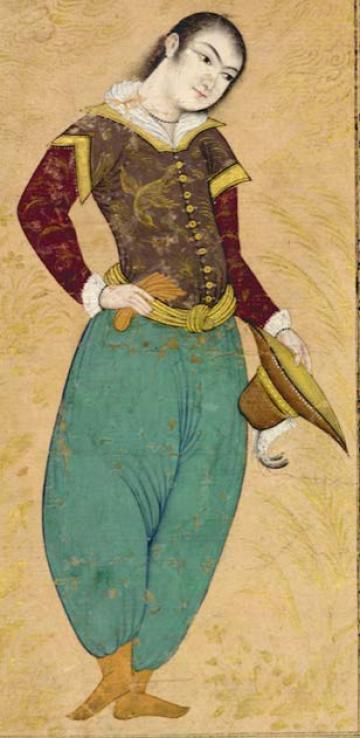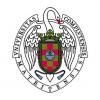The Iberian World and the East: Go-betweens and meditations, 16th-18th centuries
Coord.: Óscar RECIO MORALES (Universidad Complutense de Madrid), Cecilia TARRUELL (University of Oxford), Thomas GLESENER (Aix-Marseille Université, Institut Universitaire de France)
Org.: École des hautes études hispaniques et ibériques (Casa de Velázquez, Madrid), Maison Française d’Oxford, UMR 7303 Telemme (Aix-Marseille Université, CNRS), EUROEST: MINECO / FEDER Research project ‘The Other Europe: Eastern Europeans Communities in Spain and Its Wider World’, HAR2015-64574-C2-1-P (Universidad Complutense de Madrid), ‘Trans-Imperial Life Trajectories. Safavid Communities and Individuals in Early Modern Spain and Portugal’, HAR2015-64574-C2-2-P (Universidad de Alicante)
Coll.: Institute of Iranian Studies (Austrian Academy of Sciences), Instituto Polaco de Cultura, Universidad Complutense de Madrid, Universidad de Alicante

THE IBERIAN WORLD AND THE EAST: GO-BETWEE.NS AND MEDIATIONS, 16th-18th CENTURIES
The relations between the Early Modern Iberian monarchies and the Euro-Mediterranean East have generally been studied from the perspective of war and religious confrontation. The Catholic societies which emerged from the Reconquest seemed, indeed, to be located at the antipodes of these regions dominated by ‘schismatics’, ‘heretics’ or ‘infidels’. However, over the past years, this perspective has been revised in particular thanks to the renewal of Mediterranean studies and the history of the Portuguese Empire in Asia. The attention paid to certain social groups placed in situations of intermediation (political, economic or cultural) has been one of the vectors of this change. The border areas, in the Maghreb or in the South of Italy, have particularly interested historians, but more discreet trajectories have shown that the Mediterranean was also a place of passage between Asia and the Americas. From the shores of the Baltic in the North, through the Caucasus to the Persian Gulf in the South, the rise of the Iberian monarchies and their new maritime routes seem to have left no one indifferent. In line with this cycle’s previous seminar, organized in Madrid in 2017, this one seeks to measure the eastern ramifications of the Iberian kingdoms and their Atlantic extensions by following the path of the individuals and communities that travelled through them.
MÉDIATEURS ET MÉDIATIONS ENTRE LE MONDE IBÉRIQUE ET L’ORIENT EURO-MÉDITERRANÉEN (XVIe-XVIIIe SIÈCLE)
Les relations entre les monarchies ibériques et l’Orient euro-méditerranéen à l’époque moderne ont généralement été étudiées sous l’angle de la guerre et de l’affrontement religieux. Les sociétés catholiques issues de la Reconquête semblaient en effet situées aux antipodes de ces régions dominées par les « schismatiques », les « hérétiques » ou les « infidèles ». Pourtant, depuis plusieurs années, cette perspective a été révisée grâce notamment au renouvellement des études méditerranéennes et de l’histoire de la présence portugaise en Asie. L’attention portée à certains groupes sociaux placés en situation d’intermédiation (politique, économique ou culturelle) a été l’un des vecteurs de ce changement. Les espaces frontaliers, au Maghreb ou dans le sud de l’Italie, ont particulièrement retenu l’attention des historiens, mais des trajectoires plus discrètes ont montré que la Méditerranée était également un lieu de passage entre l’Asie et les Amériques. Des rivages de la Baltique, au nord, jusqu’au Golfe persique, au sud, en passant par le Caucase, l’essor des monarchies ibériques et de leurs nouvelles routes maritimes semble n’avoir laissé personne indifférent. Ce séminaire dans la lignée de celui organisé à Madrid en 2017, cherche à prendre la mesure des ramifications orientales des royaumes ibériques et de leurs prolongements atlantiques en suivant la trace des individus et des communautés qui les ont parcourues.
 |
 |
 |
 |
 |
MONDAY, 2 JULY
9:00-9:30
Welcome
Introduction
Cecilia TARRUELL, University of Oxford
Óscar RECIO MORALES, Universidad Complutense de Madrid
9:30-10:45
Session 1
Chair
Giuseppe MARCOCCI, University of Oxford
Joan Pau RUBIÉS, Universitat Pompeu Fabra, Barcelona
Imperial Agency and Cultural Mediations: Re-assessing the Portuguese Loss of Ormuz in 1622
Christian WINDLER, Universität Bern
Serving the Pope or Serving the King? Members of the Regular Clergy of Spanish and Portuguese Origin in Safavid Persia
11:15-13:00
Session 2
Chair
John-Paul GHOBRIAL, University of Oxford
Anna KALINOWSKA, Instytut Historii PAN, Warsaw
The Unlikely Triangle: Spain, Poland-Lithuania and the Ottoman Empire in Activities of English Diplomacy in the Late 16th and Early 17th Century
Rubén GONZÁLEZ CUERVA, CCHS-CSIC, Madrid
Mediating with Infidels: the Problems of Inter-confessional Communication with Muslim Ambassadors at the Seventeenth Century Spanish Court
Pablo HERNÁNDEZ SAU, European University Institute, Florence
Mediating ‘Distance’: Diplomatic Correspondence and Agents in the Process of Spanish-Ottoman Peace Negotiations (1778-1782)
14:15-16:00
Session 3
Chair
Thomas GLESENER, Aix-Marseille Université / Institut universitaire de France
Cesare SANTUS, École française de Rome
Between East and West: Eastern Christian Mobility and the Roman Hub (17th-18th Century)
Feras KRIMSTI, University of Oxford
‘They are all like the Bedouins back home… but Christians!’ The Iberian Travel Journal of the Maronite Monk and Alms-collector Arsāniyūs (1754-55)
Salam RASSI, Hill Museum & Manuscript Library
Counter-Reformation Literature in Ottoman Lands: Some Preliminary Notes on Arabic Translations of Spanish Catholic Texts from the Monastery of Bzummār, Lebanon
16:30-17:45
Session 4
Chair
Óscar RECIO MORALES, Universidad Complutense de Madrid
Joanna PARTYKA, Polish Academy of Sciences, Warsaw
Gdansk, Nicolaus Volckmar and Juan Luis Vives
Ernest KOWALCZYK, Instituto Polaco de Cultura, Madrid
Between Poland, Italy and Spain: Nicolaus Secovius and his ‘Brief Description of Poland’
TUSEDAY, 3 JULY
Session 5
Chair
José CUTILLAS, Universidad de Alicante
Emrah SAFA GÜRKAN, Istanbul 29 Mayıs University
À la recherche d’une famille perdue: Conversion, Memory and the Cigalas between Rome, Messina and Istanbul
Giorgio ROTA, Institut für Iranistik, Wien
On the Road: Ordinary People between Safavid Persia and Western Europe
11:15-13:00
Session 6
Chair
Glyn REDWORTH, University of Oxford
Jorun POETTERING, Ludwig-Maximilians-Universität München
The Inquisition, the Portuguese Monarchy and its Go-Betweens in the North Sea and Baltic Regions
Étienne BOURDEU, Université François Rabelais de Tours
From the Shores of the Mediterranean to the Woods of Bohemia. The Role of Baltasar Marradas as a Mediator between the Spanish Monarchy and the Holy Empire
Closing remarks
Sir John ELLIOTT, University of Oxford
Discussion
No comments yet.